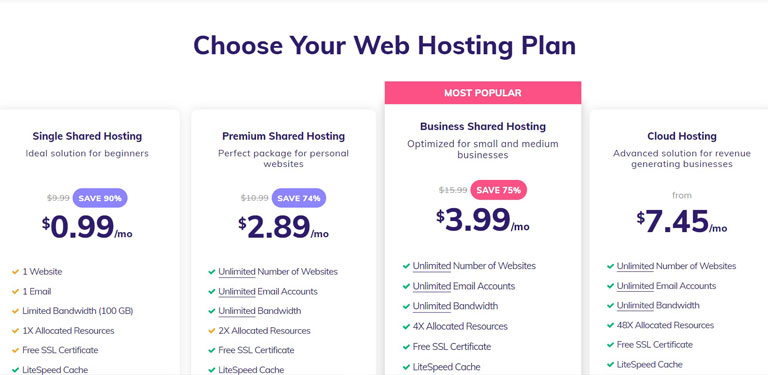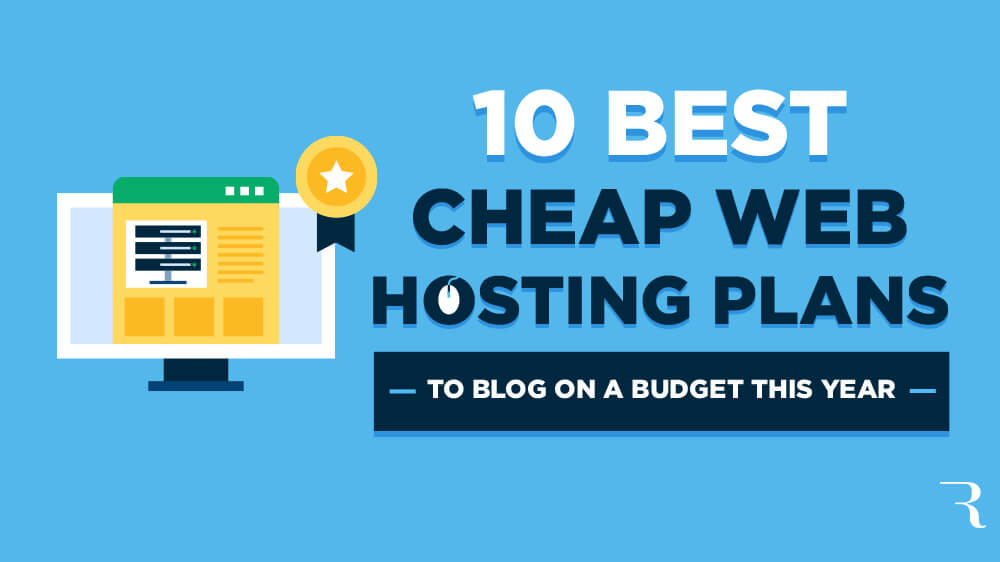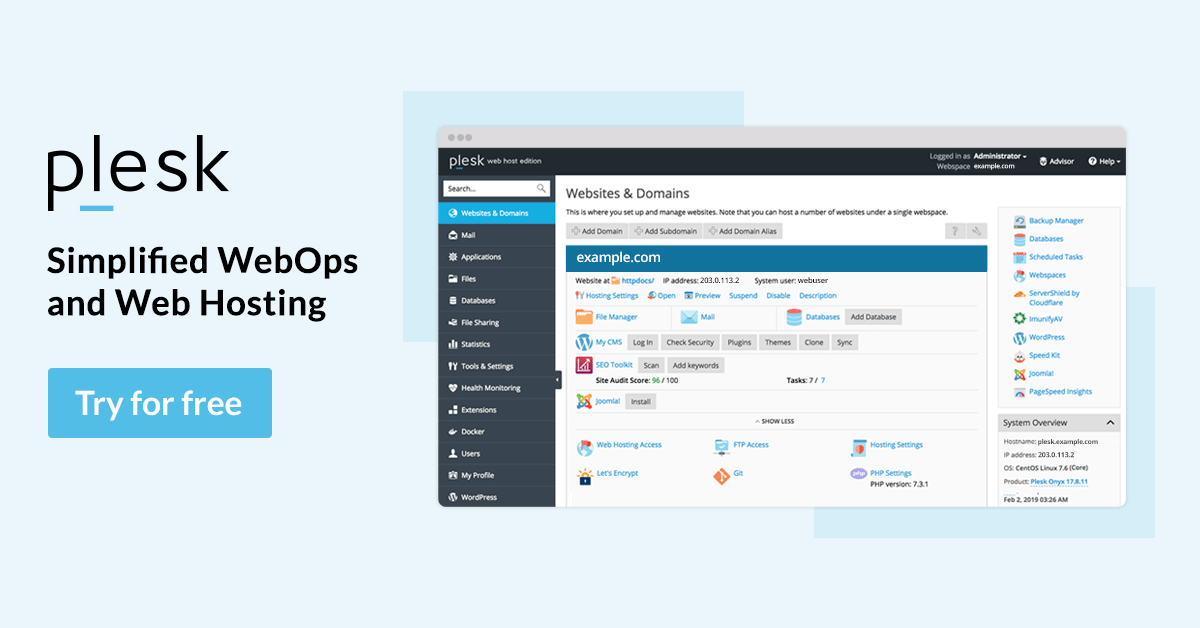Web hosting providers are the backbone of the internet, quietly powering websites and applications around the globe. These providers offer a range of services, from simple shared hosting for personal blogs to complex cloud solutions for large businesses. Understanding the different types of web hosting and choosing the right provider is crucial for achieving online success.
This comprehensive guide will delve into the world of web hosting, exploring the various types of hosting, key features to consider, and how to select the best provider for your specific needs. We’ll also discuss the importance of website security, performance, and customer support in ensuring a seamless online experience.
Web Hosting Security
In today’s digital landscape, website security is paramount. A secure website protects sensitive data, maintains user trust, and safeguards your online reputation. Web hosting providers play a crucial role in ensuring the security of their clients’ websites, as they are responsible for the underlying infrastructure and security measures.
Common Threats Faced by Web Hosting Providers
Reputable web hosting providers face a variety of threats that can compromise website security. Understanding these threats is essential for implementing effective security measures.
- Malware and Viruses: Malicious software can infect websites, leading to data breaches, website defacement, and other security vulnerabilities.
- Distributed Denial of Service (DDoS) Attacks: These attacks overwhelm websites with traffic, making them inaccessible to legitimate users.
- SQL Injection: This attack exploits vulnerabilities in databases to steal sensitive information or manipulate website data.
- Cross-Site Scripting (XSS): This attack injects malicious scripts into websites to steal user credentials or redirect users to malicious websites.
- Brute-Force Attacks: These attacks attempt to guess user passwords by trying numerous combinations until they succeed.
Security Measures Implemented by Reputable Web Hosting Providers
To mitigate these threats, reputable web hosting providers implement various security measures:
- Firewalls: Firewalls act as a barrier between a website and the internet, blocking unauthorized access and malicious traffic.
- Malware Scanning: Regular malware scanning helps detect and remove any malicious software that may have infected websites.
- SSL Certificates: SSL certificates encrypt communication between websites and users, protecting sensitive information such as credit card details and login credentials.
- Regular Security Updates: Hosting providers ensure that their servers and software are updated with the latest security patches to address known vulnerabilities.
- Data Backup and Recovery: Regular data backups allow websites to be restored in case of data loss due to security breaches or other incidents.
- Security Monitoring and Incident Response: Hosting providers monitor their systems for suspicious activity and have procedures in place to respond to security incidents promptly.
Tips for Website Owners to Enhance Website Security
Website owners can also take proactive steps to enhance their website security:
- Use Strong Passwords: Choose strong passwords that are difficult to guess and avoid using the same password for multiple accounts.
- Enable Two-Factor Authentication: Two-factor authentication adds an extra layer of security by requiring users to provide a second form of authentication, such as a code sent to their phone.
- Keep Software Updated: Regularly update website software, including plugins and themes, to patch vulnerabilities.
- Limit User Access: Grant only necessary permissions to users and avoid giving administrative access to unnecessary accounts.
- Install Security Plugins: Install security plugins that provide additional protection against malware, brute-force attacks, and other threats.
- Monitor Website Activity: Regularly monitor website activity for suspicious behavior and investigate any unusual patterns.
Web Hosting for Specific Needs
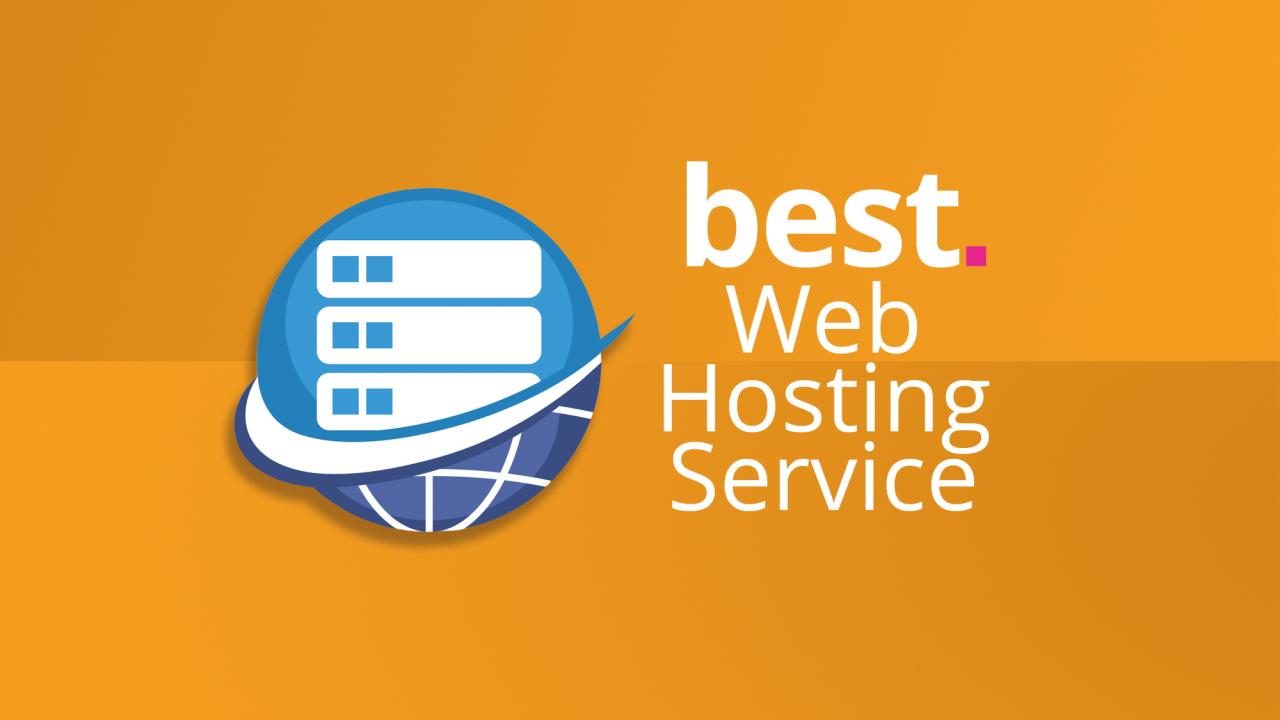
Choosing the right web hosting plan depends heavily on the specific requirements of your website. Different types of websites have unique needs, and selecting a hosting provider that caters to these needs is crucial for optimal performance, security, and scalability.
E-commerce Hosting
E-commerce websites require specialized hosting solutions to handle high traffic volumes, secure transactions, and manage large amounts of data. These websites often need features like:
- High bandwidth and storage: To accommodate the large number of visitors and product images.
- Robust security measures: To protect sensitive customer information and prevent fraud.
- Scalability: To handle traffic spikes during promotional periods or holidays.
- SSL certificates: To encrypt data transmitted between the website and customers’ browsers.
- Shopping cart integration: To enable customers to purchase products easily.
- Payment gateway integration: To process secure online payments.
E-commerce hosting providers like Shopify, BigCommerce, and Wix offer tailored solutions with features specifically designed for online stores. For instance, Shopify provides a comprehensive platform for building and managing online stores, including payment processing, inventory management, and marketing tools.
“Shopify is a leading e-commerce platform, with over 1.7 million merchants using its services.” – Statista
Blogging Hosting
Blogging websites primarily focus on content creation and distribution. They often require:
- Easy-to-use content management systems (CMS): Such as WordPress, Blogger, or Tumblr, to facilitate content creation and management.
- Regular backups: To protect blog posts and data from loss.
- optimization tools: To improve website visibility in search engines.
- Social media integration: To promote blog posts on social media platforms.
Popular blogging platforms like WordPress.com and Blogger.com provide hosting services specifically designed for bloggers. WordPress.com, for example, offers a range of plans with varying features, including custom domains, storage space, and bandwidth.
“WordPress powers over 43% of all websites on the internet.” – W3Techs
Portfolio Hosting
Portfolio websites showcase the work of individuals or businesses. They often require:
- Visually appealing designs: To create a professional and impressive online presence.
- High-quality image and video hosting: To display portfolio pieces effectively.
- Easy customization options: To tailor the website to the specific needs of the user.
Providers like Squarespace and Wix offer specialized portfolio hosting solutions with pre-designed templates and intuitive customization tools. Squarespace, for instance, provides a wide range of templates specifically designed for portfolio websites, allowing users to showcase their work in a visually appealing and professional manner.
“Squarespace is a popular website builder, with over 2.6 million active websites.” – BuiltWith
Web Hosting Trends and Innovations: Web Hosting Providers
The web hosting landscape is constantly evolving, driven by advancements in technology and the changing demands of businesses and individuals. Emerging trends are shaping the future of web hosting, offering new possibilities for performance, scalability, and cost-efficiency.
Serverless Computing
Serverless computing is a cloud-based execution model where developers can run code without managing servers. In this model, cloud providers handle all the infrastructure, scaling, and maintenance tasks, allowing developers to focus solely on building and deploying applications. This approach offers several advantages:
- Cost-Effectiveness: Users pay only for the resources they consume, making it a cost-effective option for applications with fluctuating workloads.
- Scalability: Serverless platforms automatically scale resources based on demand, ensuring optimal performance even during peak traffic.
- Increased Productivity: Developers can focus on application logic rather than server management, leading to faster development cycles.
Edge Computing
Edge computing brings computation and data storage closer to users, reducing latency and improving performance. This approach involves deploying servers and data centers at the network edge, closer to users’ locations. Edge computing is particularly beneficial for applications that require low latency, such as real-time gaming, streaming services, and IoT applications.
- Reduced Latency: By processing data closer to users, edge computing minimizes network delays, resulting in faster response times.
- Improved Performance: Edge computing can enhance user experience by delivering content and applications more efficiently.
- Enhanced Security: Edge computing allows for more localized data storage, potentially reducing the risk of data breaches and security threats.
Impact of Trends on the Web Hosting Industry
These trends are significantly impacting the web hosting industry, leading to a shift towards more dynamic and flexible hosting solutions. Traditional shared hosting models are becoming less prevalent as businesses seek more scalable and cost-effective options.
- Rise of Cloud Hosting: Cloud hosting providers are leveraging serverless computing and edge computing technologies to offer scalable and flexible solutions.
- Increased Demand for Specialized Services: The focus is shifting towards specialized hosting services tailored to specific needs, such as gaming, e-commerce, and content delivery networks (CDNs).
- Focus on Security and Compliance: With the increasing reliance on cloud services, security and compliance become paramount concerns, driving the development of advanced security features and data protection solutions.
Web Hosting Best Practices

Choosing the right web hosting provider and implementing effective management practices are crucial for a successful online presence. This section explores best practices for selecting, managing, and optimizing web hosting to ensure your website runs smoothly, securely, and efficiently.
Choosing the Right Web Hosting Provider
The selection process for a web hosting provider involves evaluating several factors to ensure a suitable match for your website’s specific needs.
- Website Requirements: Before choosing a web hosting provider, assess your website’s needs, such as traffic volume, storage space, bandwidth, and specific features like databases or scripting languages. Understanding these requirements will help you select a plan that aligns with your website’s growth potential.
- Hosting Type: Different types of web hosting, including shared, VPS, dedicated, and cloud hosting, cater to varying website sizes and traffic levels. Research the different options and choose the one that best suits your website’s current and future requirements.
- Pricing and Features: Compare pricing plans from different providers, considering features like storage space, bandwidth, security features, and customer support. Look for transparent pricing models and a balance between cost and the features offered.
- Performance and Reliability: Evaluate the provider’s uptime guarantee, server locations, and network infrastructure. Look for providers with a proven track record of high uptime and fast loading speeds.
- Customer Support: Assess the provider’s customer support options, including availability, response times, and communication channels. Choose a provider that offers reliable and responsive support to address any technical issues or concerns.
Managing Your Web Hosting Account
Once you’ve chosen a web hosting provider, it’s important to implement effective management practices to ensure your website runs smoothly and securely.
- Regular Website Backups: Regular backups are essential for protecting your website data against data loss due to technical issues, malware attacks, or accidental deletions. Implement a backup strategy that creates frequent backups and stores them securely off-site.
- Security Updates: Keep your website’s software, including the operating system, web server, and plugins, up to date with the latest security patches. Regular updates address vulnerabilities and minimize the risk of security breaches.
- Performance Monitoring: Monitor your website’s performance regularly to identify any bottlenecks or issues that might affect its speed and user experience. Tools like Google Analytics can provide valuable insights into website performance metrics.
Troubleshooting Common Web Hosting Issues, Web hosting providers
Even with proper management, you may encounter technical issues with your web hosting. Here are some common issues and troubleshooting tips:
- Website Downtime: If your website is down, check the status of your web hosting provider’s servers. If there are no reported outages, troubleshoot your website’s configuration and ensure it’s connected to the server correctly.
- Slow Loading Speeds: Analyze your website’s code for optimization opportunities. Consider using a content delivery network (CDN) to cache static content closer to users. Optimize images and minimize HTTP requests to improve page load times.
- Security Threats: If you suspect a security breach, immediately change your website’s passwords and contact your web hosting provider for assistance. Implement security measures like two-factor authentication and strong passwords to prevent unauthorized access.
Optimizing Web Hosting Performance
Optimizing your web hosting can significantly improve your website’s speed, efficiency, and user experience.
- Server Optimization: Work with your web hosting provider to optimize your server’s configuration. This may involve adjusting server settings, installing caching plugins, and implementing other performance-enhancing techniques.
- Content Optimization: Optimize your website’s content for faster loading times. Compress images, minify CSS and JavaScript files, and use a content delivery network (CDN) to deliver content from servers closer to users.
- Database Optimization: Regularly optimize your website’s database to improve its performance. This may involve indexing tables, removing unnecessary data, and using efficient queries.
Conclusion
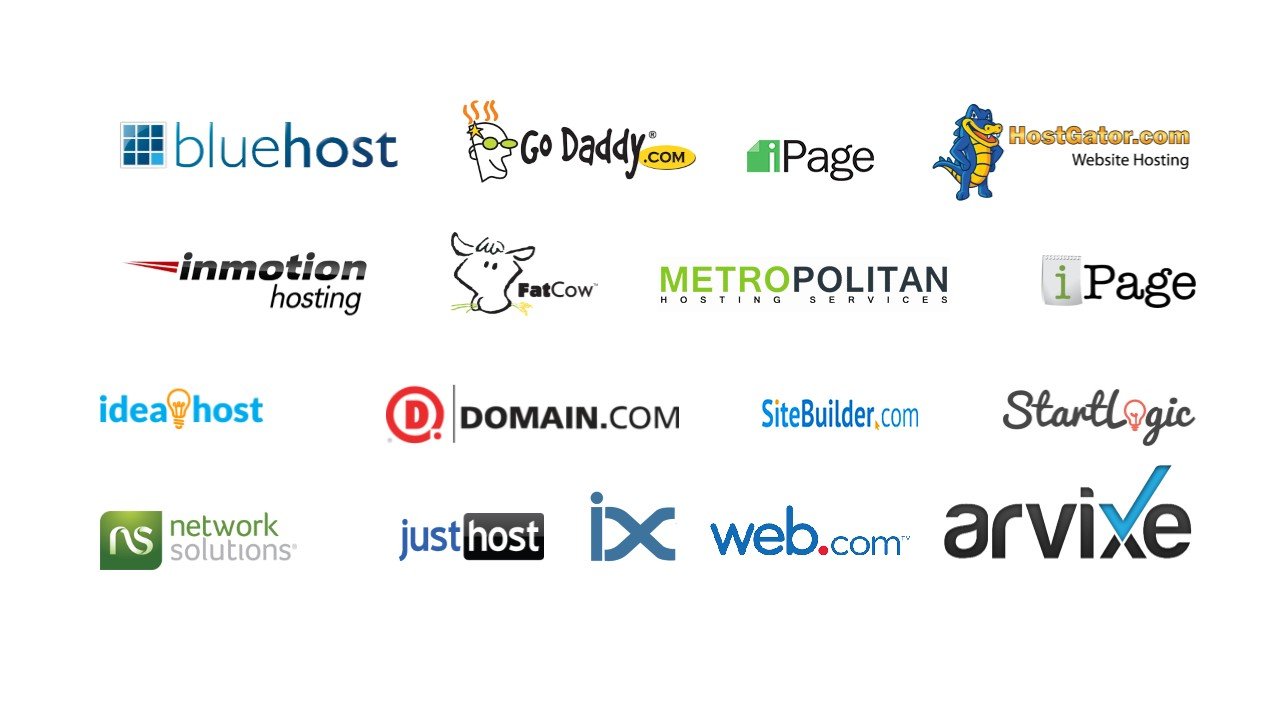
Navigating the web hosting landscape can seem daunting, but with careful planning and a thorough understanding of your requirements, you can find the perfect provider to launch and grow your online presence. Remember to prioritize website security, performance, and customer support, as these factors play a crucial role in delivering a positive user experience. By making informed decisions, you can unlock the full potential of your website and achieve your online goals.

